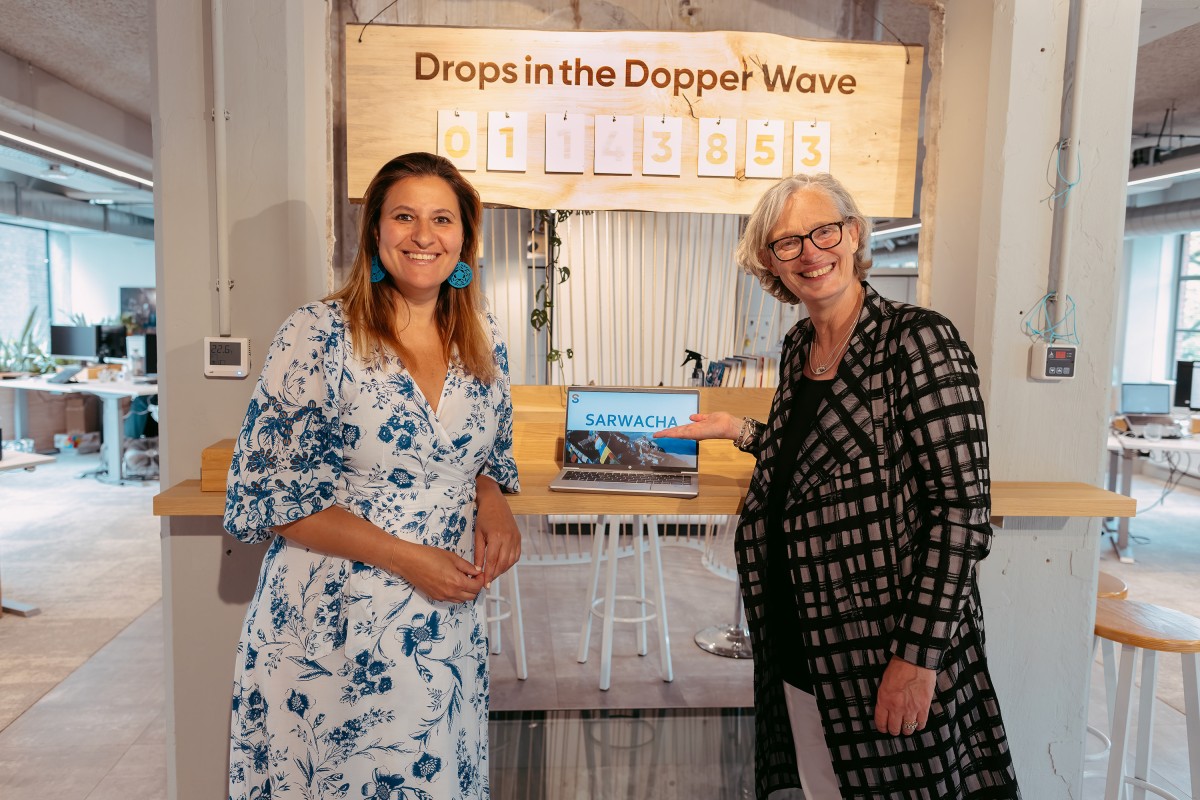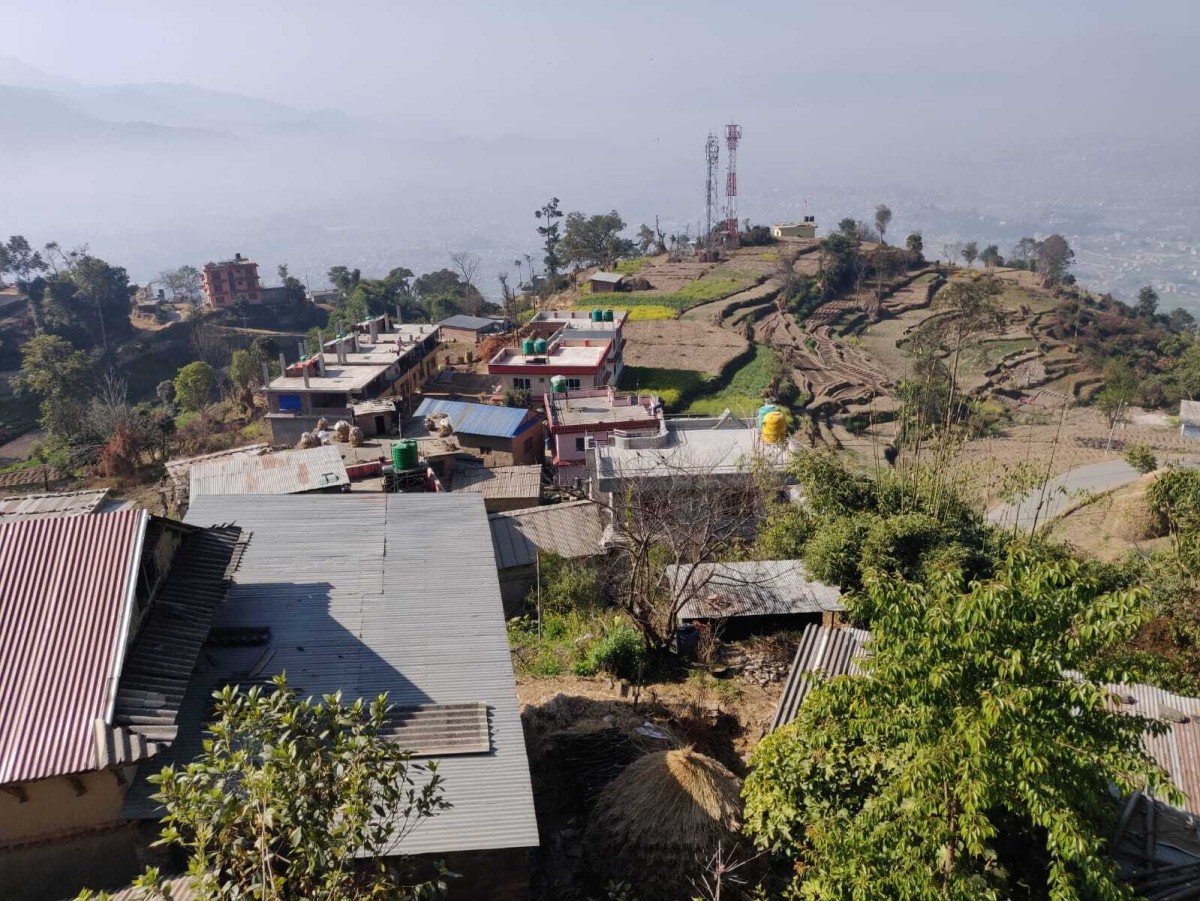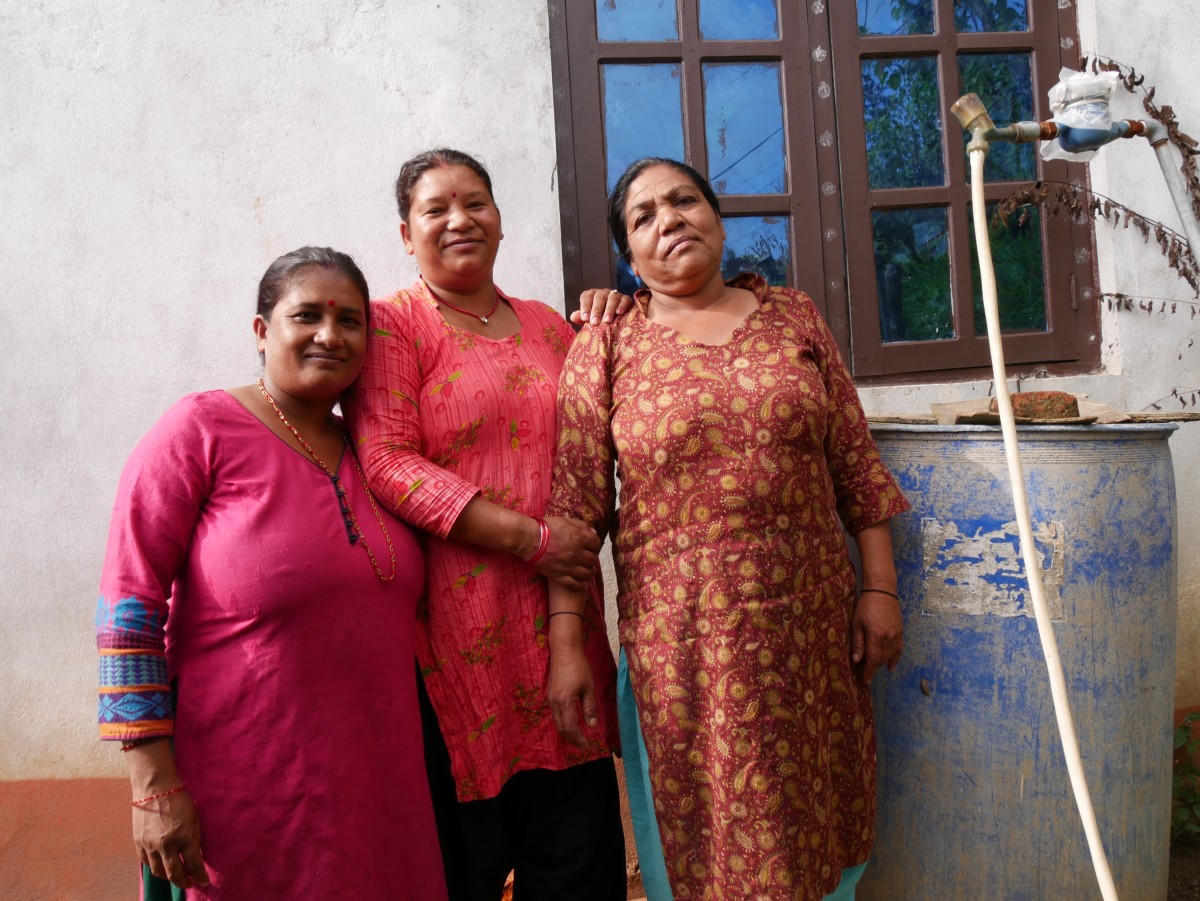A world without packaged water: Why Simavi and Dopper are working on access to water in Nepal
A world with clean water for all: The partnership between Simavi and corporate partner Dopper is grounded in this shared ambition. This collaboration dates to the very first Dopper bottle ever sold, and over the years we have worked together to create lasting impact for water-scarce communities in Nepal.
In 2023 we launched a new project together called Sarwacha; the highest. A fitting name, because our aspiration is to ensure widespread systemic change and water justice. In this programme, we work to create equal and sustainable access to drinking water for 60,000 residents of Changunarayan Municipality.

A world without packaged water
Dopper was founded with the aim of getting people to drink tap water and rid the world of all water packaging. But, as the CEO of Dopper Virginia Yanquilevich knows, this is impossible if people do not have access to safe drinking water from the tap: '1 in 4 people still don’t have access to safely managed water. But access to water is a human right. How can we work towards a world with no packaged water if so many of our population do not currently have access to safe drinking water?'

A decade long partnership
In order to help realize a world where everybody has access to safe water, Dopper first partnered with Simavi to collaborate on water projects in Nepal in 2012. More than a decade later, this partnership has provided access to clean drinking water to nearly 70,000 people in Nepal. But only providing safe water is not enough for either Dopper or Simavi: real lasting impact is made through system change. This is why, in 2023, we launched the Sarwacha programme. Yanquilevich: 'The Sarwacha programme came from the drive to really create system change at a large scale. For Dopper, it’s not enough to provide water to X number of people, but we really want to see the whole system changed; that people can have water in their homes, schools and hospitals and that it’s managed in the future by the government. This is how the programme idea really started.'
Safe and accessible water
Together with local partner ENPHO, Simavi and Dopper work in the Changunarayan municipality. The area around Changunarayan is rapidly urbanizing, and water infrastructure has quickly developed. However, the presence of hardware does not necessarily equate to equal access to safe water for everybody. In the context of Nepal, it is important to focus not only on providing water systems, but also to ensure the water is safe and accessible, Yanquilevich explains: 'Nepal lays at the base of the Himalaya and has one of the greatest fresh drinking water reserves in the world. Still, 75% of households use source water that is contaminated with E. coli. 40% of the population in Nepal spends more than 30 minutes every day to collect drinking water for the household and this is largely done by women and children.'

A best case model
To develop water systems that are inclusive and climate resilient, and regularly tested for bacteria such as E. coli, it is important to enhance the capacity of groups who will be there even after the programme finishes. Therefore, water user committees play an important role in ensuring the sustainability and longevity of the programme. The aim is to create a model that can also be applied in more municipalities in Nepal, says Virginia Yanquilevich: 'We want the Sarwacha programme to be a best-case model for clean water access across the country and abroad – when we succeed at creating one water-safe municipality alongside the government, people and the public sector, we envision making this scalable across the rest of Nepal.'


